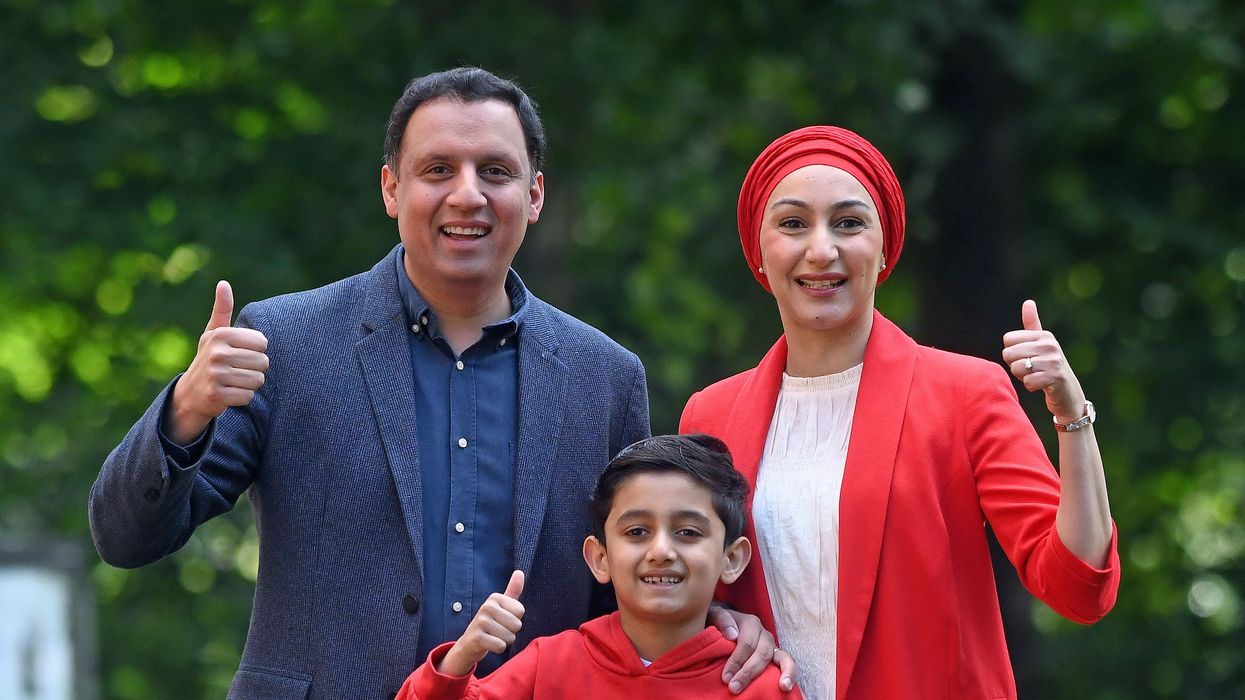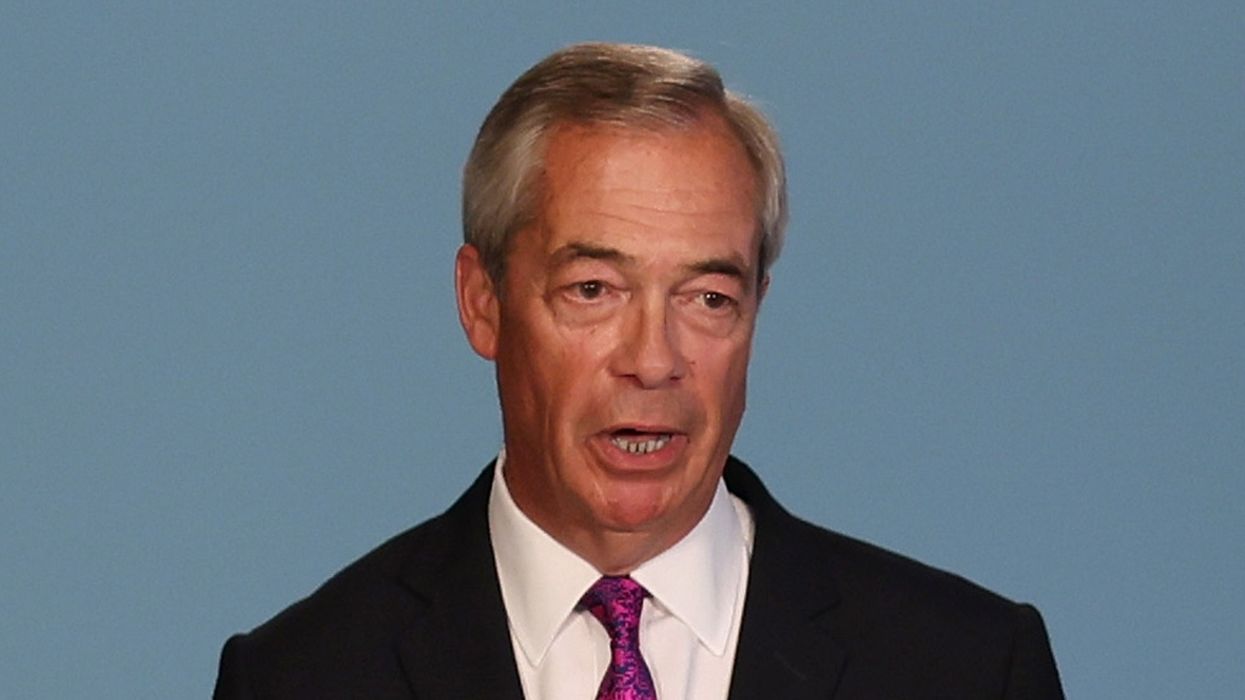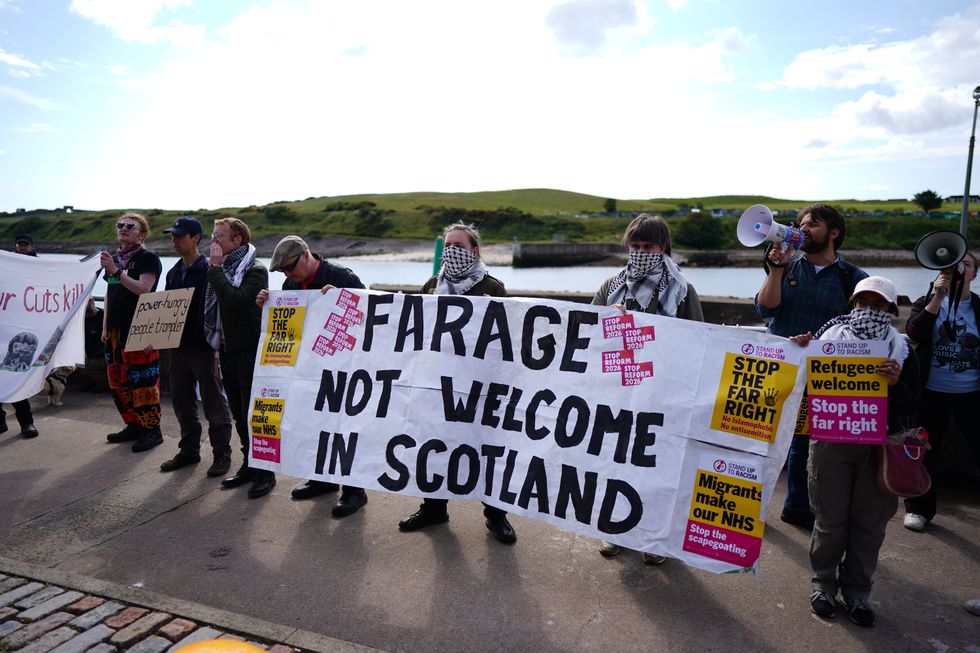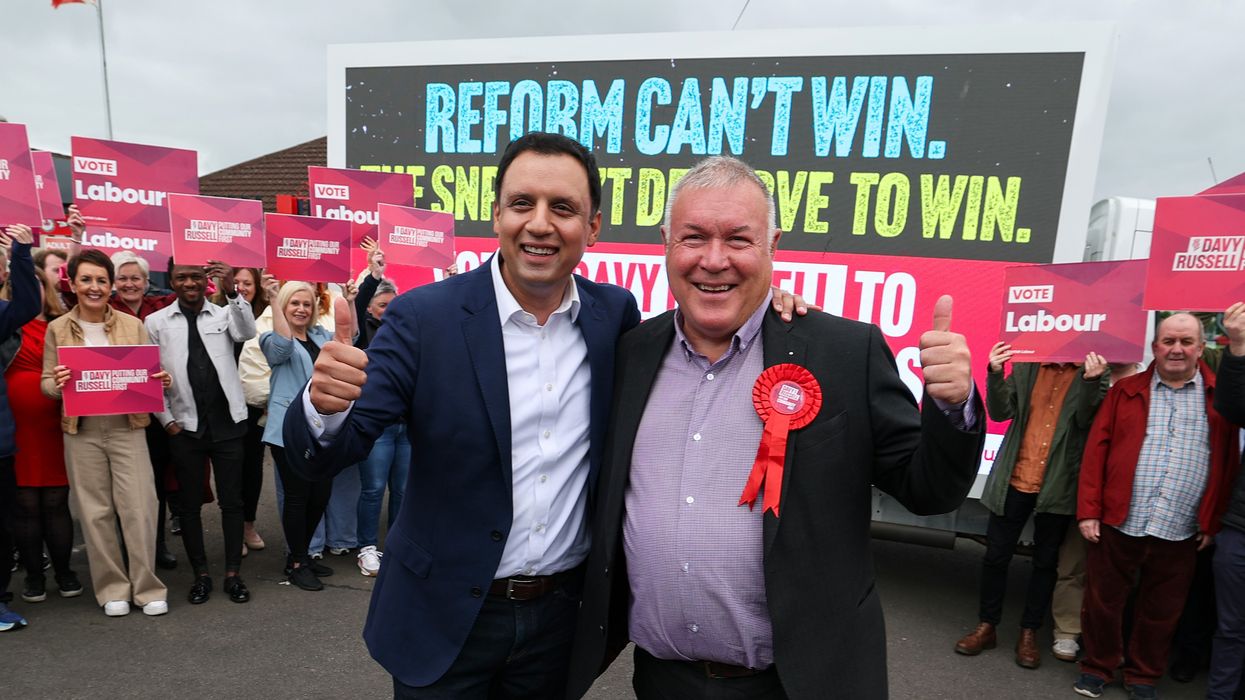SCOTLAND’s Labour leader Anas Sarwar has warned that the country risks “going back to a dark place” of prejudice and discrimination after Reform UK’s Nigel Farage resorted to “racist” election tactics.
In the lead-up to the by-election in Hamilton, Larkhall and Stonehouse which is scheduled on Thursday (5), Reform UK posted a controversial advert featuring portions of a 2022 speech where Sarwar spoke about encouraging more people from south Asian backgrounds to enter politics. The advert wrongly claimed Sarwar wanted to “prioritise the Pakistani community”, despite him not saying this in the clips.
Both Labour and the Scottish National Party (SNP) have condemned the advert as “blatantly racist” and have complained to Meta, which owns Facebook and Instagram, demanding its removal. First minister John Swinney called it “a disgrace” and said he was “disgusted” by Farage’s comments.
Speaking to supporters, Farage wrongly accused Sarwar of saying the south Asian community would “take over the country” and “take over the world”.
When he was challenged by journalists that Sarwar never made such comments, Farage doubled down, calling the Scottish Labour leader’s past speeches “sectarian politics”.
At a London press conference, Farage defended the campaign, claiming: “All we’ve done is to put out the exact words spoken by him without any comment. We’ve said nothing, just that we will represent the people of that constituency.”
He accused Sarwar of introducing “sectarianism” into Scottish politics.
Sarwar, who was born in Glasgow to Pakistani Muslim parents, hit back strongly, describing the Reform leader as someone who “wants to bring poison into our politics, fear into our politics”.
He said: “Scotland has nothing in common with Nigel Farage. He is a spiv he is a divisive politician. He probably couldn’t pin many parts of Scotland on a map.”

Sarwar challenged Farage to a face-toface debate, saying: “Come up here. I’ll challenge him any time, any place, in Hamilton, any town hall.”
He contrasted his own background working in Scotland’s NHS with Farage’s time “on the Brussels gravy train”.
In addition, he has spoken about the “guilt” he feels at the impact racist attacks directed at him is having on his children, following the clash with Farage.
Speaking to journalists in Hamilton, South Lanarkshire, Scotland, Sarwar revealed his concerns about how political attacks affect his family.
“I think the challenge is, where I feel a wee bit of guilt and where I feel a wee bit of trepidation, the impact it has on my kids,” he said.
The Glasgow MSP, who grew up as the son of Britain’s first Muslim MP Muhammad Sarwar, said he had learned to cope with racist abuse throughout his political career. “To be honest, it only motivates me and drives me, and makes me want to work even harder,” he explained.
“I think that probably has added resilience for me, and therefore it’s water off a duck’s back.”
However, he admitted his children would have to accept things “as normal that aren’t normal”, just as he did when his father faced similar attacks during his time as an MP between 1997 and 2010.
“There’s a bit of guilt that comes with that, but ultimately I’m doing it for them in the sense that I genuinely fear what the future of Scotland is unless we get a fundamental change,” he said.
Referring to a 2011 speech, he said he had “very naively” thought his children’s generation might “grow up in a world where people would see past the difference”.
He added: “I think there’s a real danger that we are going back to a dark place. The answer to it has to be the politics of hope and unity rather than the politics of despair and fear.”
In an open letter to voters, Sarwar accused Reform UK of spreading “bile, misinformation and racial slurs” throughout the campaign.
Reform UK’s by-election candidate, Ross Lambie defended the advert, insisting it was “absolutely not racist” and claiming Sarwar’s entire speech was about prioritising the Pakistani community.
However, other parties across the political spectrum have condemned Reform UK’s campaign.
SNP candidate Katy Loudon said the advert “has no place in Scottish politics”, while Liberal Democrat candidate Aisha Mir accused Reform of “scummy tactics”. Scottish Green co-leader Patrick Harvie called it a “despicable attempt to bring blatant racism into the by-election”.

Recent polling shows Labour’s popularity in Scotland has dropped sharply to 19 per cent from 27 per cent last November, while Reform UK is just one point behind at 18 per cent. The SNP maintains the lead with 33 per cent support.
Initially seen as a two-horse race between Labour and the SNP, Reform UK’s surge in support has shaken up the contest. Swinney now describes the election as a “straight contest” between his party and Reform, warning that Farage poses a “clear and present danger” to Scotland.
However, Sarwar disputed this narrative, insisting the race remains between Labour and the SNP.
The campaign has also seen significant political defections. On Monday (2), Farage welcomed former Labour councillor Jamie McGuire to Reform UK – marking Scottish Labour’s first defection to the party. Former Tory councillor Duncan Massey also switched to Reform UK the same day.
Energy policy has emerged as another key battleground. Farage used his Aberdeen appearance to attack net zero policies, claiming they sacrifice Scotland’s oil and gas industry.
Speaking to business leaders in the energy sector, he argued that fossil fuel consumption would reach record levels in 2025 despite climate commitments.
Reform UK’s deputy leader Richard Tice called net zero the “greatest act of financial self-harm ever imposed on this nation,” claiming ordinary families suffer whilst politicians remain unaffected.
The SNP’s Stephen Flynn countered that Farage was “just as dangerous to Scotland’s long-term energy and economic future” as environmental activists seeking immediate industry closure.

Protests have followed Farage’s campaign visits, with anti-racism demonstrators gathering outside his Aberdeen event. The Reform UK leader defended his party’s record, pointing to chairman Zia Yusuf’s Scottish Asian heritage while maintaining his party does not “talk about race” and believes everyone should be treated equally.
Farage is hoping for a significant push for Reform UK in the by-election to establish itself in Scottish politics after years of limited success north of the border.
Thursday’s by-election was called following the death of Scottish government minister Christina McKelvie in March.
McKelvie, who represented the SNP for 17 years, was diagnosed with secondary breast cancer last year.




